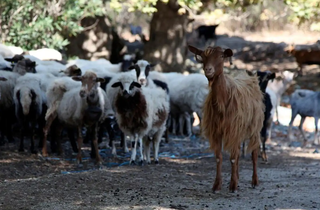The decision comes after the disease surfaced in multiple regions following an initial outbreak on July 11.
Thousands of animals have already been culled, with nearly 10,000 slated for slaughter. Authorities believe the outbreak originated from imported livestock.
New cases have been identified in Corinth, Larissa, and the greater Athens area, prompting concerns about the spread of the disease. While the specific country of origin for the infected animals has not been disclosed, Greece primarily imports sheep and goats from Turkey, Albania, and Romania.
Romania is also battling a similar outbreak, with nearly 58,000 sheep and goats culled to contain the virus. Greece has faced criticism for its handling of the situation, particularly after it was revealed that some infected sheep were buried alive.
The Greek government has emphasized that the disease, known as Peste des Petits Ruminants (PPR), does not pose a threat to humans. Meat and pasteurized milk remain safe for consumption. However, the outbreak has caused significant economic hardship for Greek farmers, who are still recovering from last year's devastating floods. (ILKHA)



 Güncel
Güncel
 Dünya
Dünya
 Güncel
Güncel
 Güncel
Güncel
 Güncel
Güncel
 Güncel
Güncel
 Güncel
Güncel
 Dünya
Dünya
 Güncel
Güncel
 Güncel
Güncel





